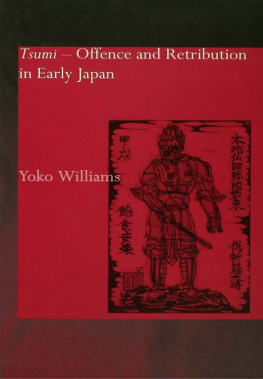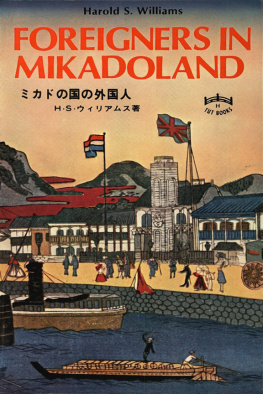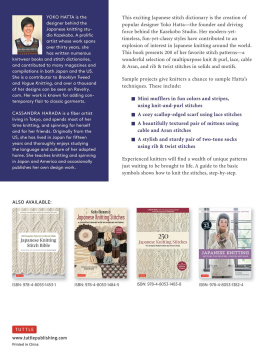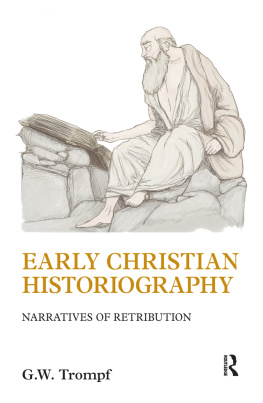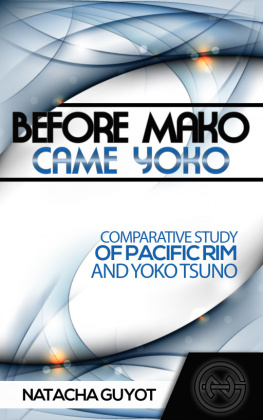TSUMI OFFENCE AND RETRIBUTION IN EARLY JAPAN
Covering the period from before the emergence of the first political units through to the formation of the Japanese ritsury state in the eighth century, this book offers a ground-breaking scholarly diachronic analysis of tsumi (offence and retribution) from a politico-historical perspective.
Taking as its starting point the native forms of tsumi in the realms of myth and prayer, the study traces their development through the periods of the formation of the state and the centralization of the governing structure, to the introduction of a written law system of governing. Through detailed and logical analysis this study illuminates early Japanese political thought, written and unwritten law, and the essentially political notion of tsumi.
Yoko Williams is a scholar of the philosophy and politics of early Japan. She obtained her doctorate from the Faculty of Oriental Studies, the University of Oxford, and has lectured at several universities in Tokyo. She currently lives in Vienna.
First published 2003
by RoutledgeCurzon
11 New Fetter Lane, London EC4P 4EE
Simultaneously published in the USA and Canada
by RoutledgeCurzon
29 West 35th Street, New York, NY 10001
RoutledgeCurzon is an imprint of the Taylor & Francis Group
2003 Yoko Williams
Typeset in Goudy by
M Rules
Printed and bound in Great Britain by
Antony Rowe Ltd, Chippenahm, Wiltshire
All rights reserved. No part of this book may be reprinted or reproduced or utilized in any form or by any electronic, mechanical, or other means, now known or hereafter invented, including photocopying and recording, or in any information storage or retrieval system, without permission in writing from the publishers.
British Library Cataloguing in Publication Data
A catalogue record for this book is available from the British Library
Library of Congress Cataloguing in Publication Data
Williams, Yoko, 1955
Tsumi offence and retribution in early Japan / Yoko Williams.
p. cm.
Includes bibliographical references and index.
1. Japan History To 794. 2. Retribution. I. Title.
DS855 .W55 2002
952 dc21 2002068061
ISBN 0700717080
I wish to take this opportunity to express my sincere gratitude and deep respect for Dr I. J. McMullen, Fellow of Pembroke College, Oxford, and a scholar of Japanese Confucianism, who so warmly and patiently guided my study with his brilliant insight. He also taught me the most important attribute for an immature researcher like myself sincerity in the pursuit of learning which will never leave me as long as I live.
I am also grateful to Dr Phillip Harries of Queen's College, Oxford, to Professor Richard Gardner of Sophia University, Tokyo, and to the anonymous readers of earlier versions of the work for their valuable comments. I also express my gratitude to the other members of the teaching staff involved with Japanese studies at the University of Oxford. I also take this opportunity to pay my respect to all those scholars whose work I read and from whom I learnt so much.
I would also like to thank the historian, friend and teacher Dr Majorie Reeves of St Anne's College, Oxford, who introduced me to the world of learning when I was very young, and who always welcomed me into her study at home and without fail offered me a lovely cup of tea and her company.
I also thank John and Richard Jeffery, and Sugaya Shinobu, for their friendship, and to my family, who happily encouraged me to spend most of my time studying. I also thank the Sasakawa Foundation for financial assistance towards a research visit to Japan. Finally, I thank RoutledgeCurzon for bringing this work to print.
Yoko Williams
Vienna, July 2001
The following conventions have been observed:
Japanese names are written in the original order, with the surname first and the personal name second.
Long vowel sounds in Japanese words and names have been indicated with macrons.
Japanese emperors are referred to by their posthumous Chinese names.
The following abbreviations are used in the notes to denote primary source material and their translations:
Chinese Dynastic Histories: Tsunoda Rysaku and L. Carrington Goodrich, Japan in the Chinese Dynastic Histories: Later Han Through Ming Dynasties (South Pasadena, CA, 1951).
E: Engishiki, Procedures for ceremonies of the Engi period) ed. Kuroita Katsumi, in vol. 26 of Shintei zho kokushi taikei (National history series, with new additions) (Tokyo, 1965).
Engi-Shiki 1/Engi-Shiki 2: Felicia Gressitt Bock (tr.), Engi-Shiki: Procedures of the Engi Era, Books IV/Books VIX (Tokyo, 1970, 1972).
Gishi Wajinden etc.: Ishihara Michihiro (original text, with translation into contemporary Japanese, and commentary), Gishi Wajinden/Gokansho Waden/Ssho Wakokuden/Zuisho Wakokuden (Tokyo, 1985).
Gleanings: Kat Genchi and Hoshino Hikoshir (trs.), Kogoshi: Gleanings From Ancient Stories 3rd edn (Tokyo, 1926).
K/N: Kurano Kenji and Takeda Ykichi (eds.), Kojiki/Norito, vol. 1 of Nihon koten bungaku taikei (Japanese classics series) (Tokyo, 1958).
JG: Ishii Kyji (ed.), Jgan gishiki (Procedures for ceremonies of the Jgan era), Zoku Nihon koten zensh (Series of Japanese classics, continued) (Tokyo, 1980).
KG: Hanawa Hokiichi (ed.), Ktaijing gishikich (Records of rituals at the inner shrine), vol. 1 of Gunsho ruij (A collection of Japanese classical manuscripts) rev. 3rd edn (Tokyo, 1985).
Kojiki: Basil Hall Chamberlain (tr.), The Kojiki: Records of Ancient Matters (Rutland, Vermont and Tokyo, 1982 [191920]).
Nihongi 1/Nihongi 2: W. G. Aston (tr.), Nihongi: Chronicles of Japan from the Earliest Times to AD 697 (Rutland, Vermont and Tokyo, 1972 [1924]).
Norito: Donald L. Philippi (tr.), Norito: A Translation of the Ancient Japanese Ritual Prayers (Princeton, NJ, 1990 [1959]).
NS1/NS2: Sakamoto Tar et al. (eds.), Nihon shoki (Chronicles of Japan), (j and ge) (parts 1 and 2), vols 67 and 68 of Nihon koten bungaku taikei (Japanese classics series) (Tokyo, 1967).
R: Inoue Mitsusada et al. (eds.), Ritsury, vol. 3 of Nihon shis taikei (Series on Japanese thought) (Tokyo, 1976).
Ry no gige: Kiyohara no Natsuno, Ry no gige, vol. 12 of Kokushi taikei (Series on Japanese history) (Tokyo, 1904), pp. 1328.
SN: Aoki Kazuo et al. (eds.), Shoku Nihongi (Chronicles of Japan, continued), vols 1215 of Shin Nihon koten bungaku taikei (A new series of Japanese classics) (Tokyo, 198995).
Wamysh 1: Wamy ruijush (A dictionary of Japanese words: also known as Wamysh), compiled by Minamoto no Shitag, ed. Nihon koten zensh kankkai (Publishing association for the complete collection of Japanese classics) vol. 1 (Tokyo, 1978).


